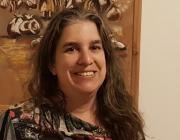Citation:
Abstract:
From 1961-1965, the Medical School of the Hebrew University of Jerusalem taught four cohorts of medical students from developing countries, mostly African. This article explores the program through the theory of hospitality. First, we find that hospitality is constructed and enabled by international interests. Second, those interests build a status which has unexpected consequences that reveal sorts of hosts, welcoming and xenophobic. Third, as an outcome of the international structure of student exchange, the guests' response to the terms of hospitality was mitigated by their privileged status as international medical students. On the one hand, they appreciated Israel as a model of post-colonial state-building; on the other, they criticized the racist reactions to their presence.

